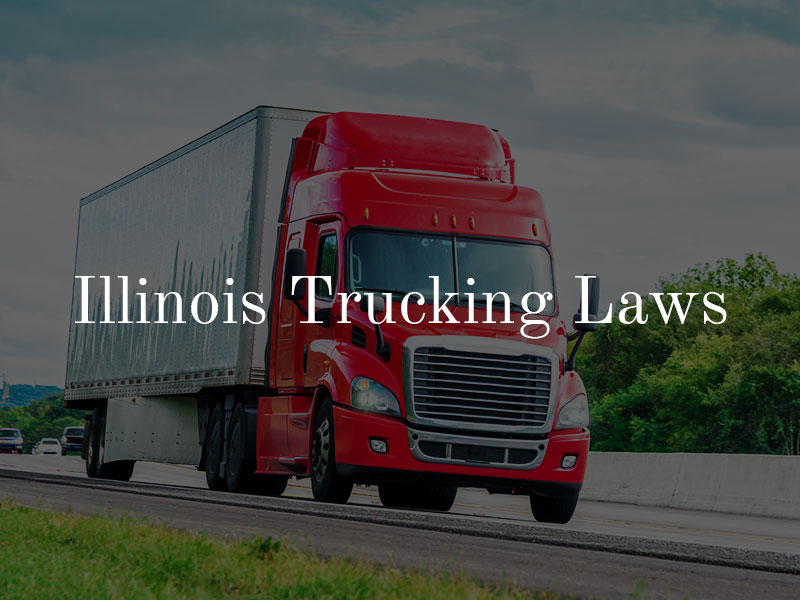Illinois Trucking Laws
Personal Injury,Truck Accident - August 23, 2019 by Horwitz, Horwitz & Associates
The trucking industry is vital to the economy here in Illinois and throughout the US. All commercial trucks operate under either state or federal laws (and sometimes both). Because of the safety risks that larger trucks pose on the roadways, both the drivers and the trucks themselves face much more stringent requirements to be roadworthy. Today, we want to discuss the regulations in place to keep everyone on the Illinois roadways safe from trucking accidents.

Why are There Two Sets of Trucking Regulations?
Trucks that operate interstate are regulated by the US Department of Transportation through the regulations published by the Federal Motor Carrier Safety Administration (FMCSA). Most of the large commercial vehicles you see on the highways fall under federal regulations. This can include freight carriers, moving company trucks, long-distance passenger transportation buses, etc.
States may also impose certain regulations on trucks along with federal regulations. In some cases, only Illinois law applies, particularly when the gross vehicle weight rating (GVRW) of over 18,000 that operate only in this state. Commercial vehicles that operate only within Illinois generally include garbage trucks, dump trucks, gas trucks, water trucks, school buses, local transit buses, school buses, etc.
FCMSA Regulations
The FMCSA regulations include all aspects of the trucking industry. Drivers must be 21 or older and obtain their commercial driver’s license before they can operate an interstate vehicle. The FMCSA allows trucks to weigh up to 80,000 pounds.
- Alcohol and drug testing: There are struck testing requirement in place, including pre-employment testing, random testing, reasonable suspicion testing, and post-accident testing.
- Hours of service: commercial truck drivers can operate 11 hours each day only after they have had ten consecutive hours off duty. They cannot drive beyond the 14th hour in a row after coming off duty. Drivers cannot operate after 60 hours in seven days in a row or 70 hours in eight days in a row. Truck drivers must take at least one 30 minute break during their first eight hours of driving.
- Maintenance: Drivers/companies must perform systematic inspection, repair, and maintenance on their vehicles. They must keep records of maintenance. All parts of the truck must be in good working order before it hits the roadway.
- Markings: All commercial motor vehicles must have the legal name or trade name of the company operating the vehicle and the FMCSA identification number. All reflective markings and hazard warnings must be present to prevent accidents.
Illinois Trucking Laws
Illinois has adopted federal regulations for many aspects of trucking. In particular, they include braking requirements, driver drug testing, and vehicle inspection and maintenance. Commercial truck drivers in Illinois should be aware that:
- A driver in Illinois may operate a non-interstate commercial vehicle if at the age of 18.
- The blood alcohol level while operating a commercial vehicle in Illinois must not exceed .04%.
- Trucks may only drive up to 65 mph on rural interstates. On urban and limited-access roads, the limit is 55 mph.
- There are three classes of routes in Illinois that have various speed and weight limits:
- Class 1 route: Interstate routes approved for load widths of 8’6 or less.
- Class 2 route: Major state highway routes approved for load widths of 8’6 or less. Trucks on these routes may be longer but not have a base of more than 55 feet.
- Class 3 route: This includes local roads with a maximum allowable load width of 8’0 and a wheelbase not greater than 55 feet.
The Illinois Truck Enforcement Association was founded in 2009 to help police enforce state trucking laws. If you have any questions about commercial truck laws in Illinois, contact the truck accident attorneys in Chicago.


